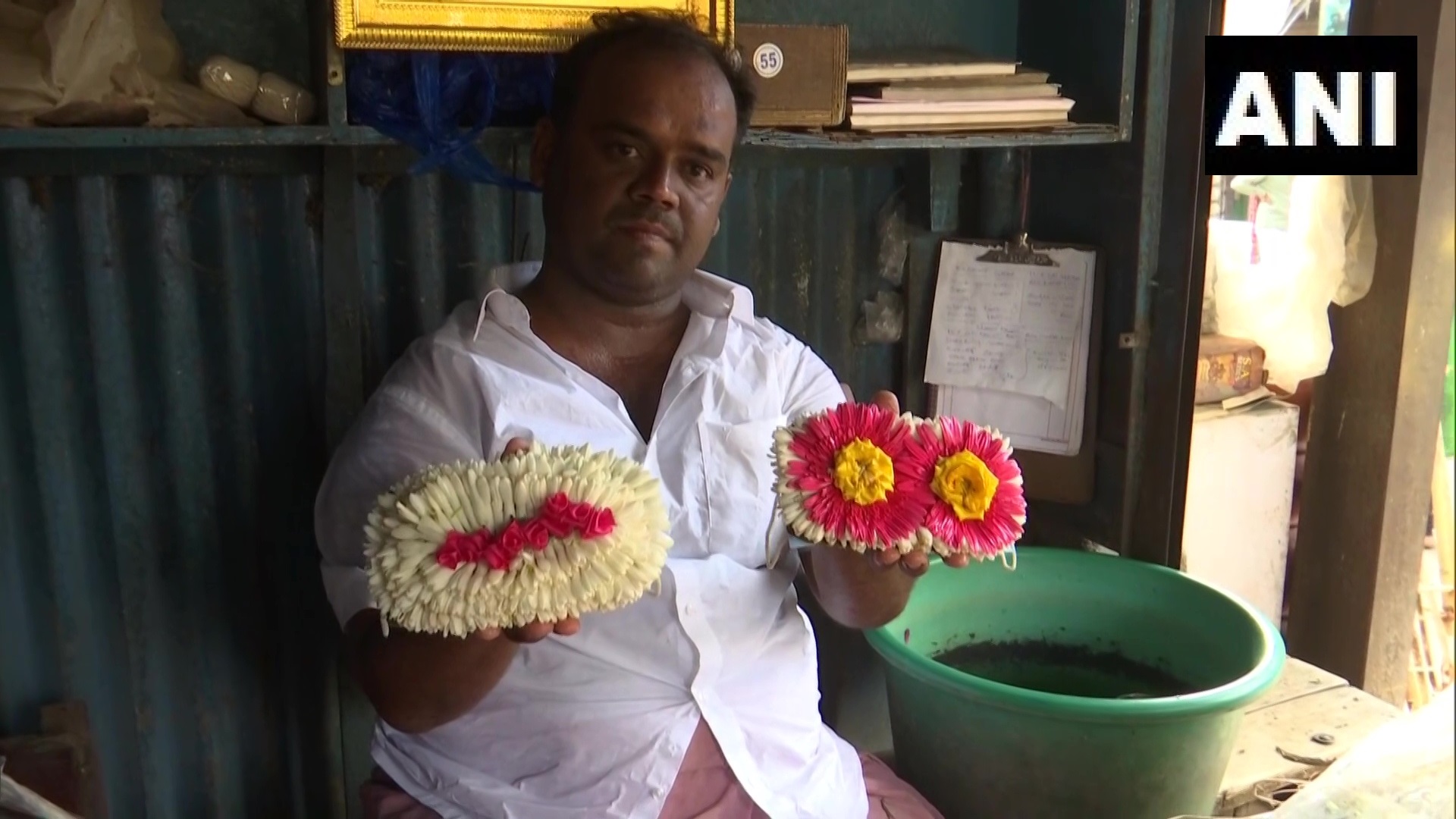
The active cases comprise 1.21 per cent of the total infections
India logged 28,204 new coronavirus infections, the lowest in 147 days, taking the total tally of cases to 3,19,98,158, while the active cases fell to 3,88,508, the lowest in 139 days, according to the Union Health Ministry data updated on Tuesday.
The COVID-19 recovery rate has increased to 97.45 per cent, which is the highest ever recovery rate achieved, the ministry said.
The number of deaths has climbed to 4,28,682 with 373 fresh fatalities, data showed.
The active cases comprise 1.21 per cent of the total infections, the lowest since March 2020, the ministry said.
A decrease of 13,680 cases has been recorded in the active COVID-19 caseload in a span of 24 hours.
Here are the updates on coronavirus (COVID-19) cases:
Mohan, a flower vendor in Madurai makes floral masks exclusively for brides, grooms to raise awareness about COVID-19.
"Despite govt orders, people don't wear masks at weddings. I make these floral masks to encourage brides, grooms to wear them," he said.

Germany to end free Covid tests to boost jab take-up
Germany will end free coronavirus tests in October, regional leaders and the federal government agreed on Tuesday, in a push to incentivise more people to get vaccinated.
With Covid-19 tests or proof of vaccination or recovery to be a requirement to access facilities including restaurants, cinemas or gyms, people who refuse to get jabbed will have to pay to prove they are infection-free come autumn or risk being shut out.
Germany will end free coronavirus tests in October, regional leaders and the federal government agreed on Tuesday, in a push to incentivise more people to get vaccinated.
With Covid-19 tests or proof of vaccination or recovery to be a requirement to access facilities including restaurants, cinemas or gyms, people who refuse to get jabbed will have to pay to prove they are infection-free come autumn or risk being shut out.
Global Eradication Of COVID-19 More Feasible Than For Polio: Study
The global eradication of COVID-19 is more feasible than it is for polio, but considerably less so than it was for smallpox, according to an analysis published in the journal BMJ Global Health on Tuesday.
Public health experts from the University of Otago Wellington in New Zealand noted that vaccination, public health measures, and global interest in achieving this goal all make eradication of COVID-19 possible.
The global eradication of COVID-19 is more feasible than it is for polio, but considerably less so than it was for smallpox, according to an analysis published in the journal BMJ Global Health on Tuesday.
Public health experts from the University of Otago Wellington in New Zealand noted that vaccination, public health measures, and global interest in achieving this goal all make eradication of COVID-19 possible.




